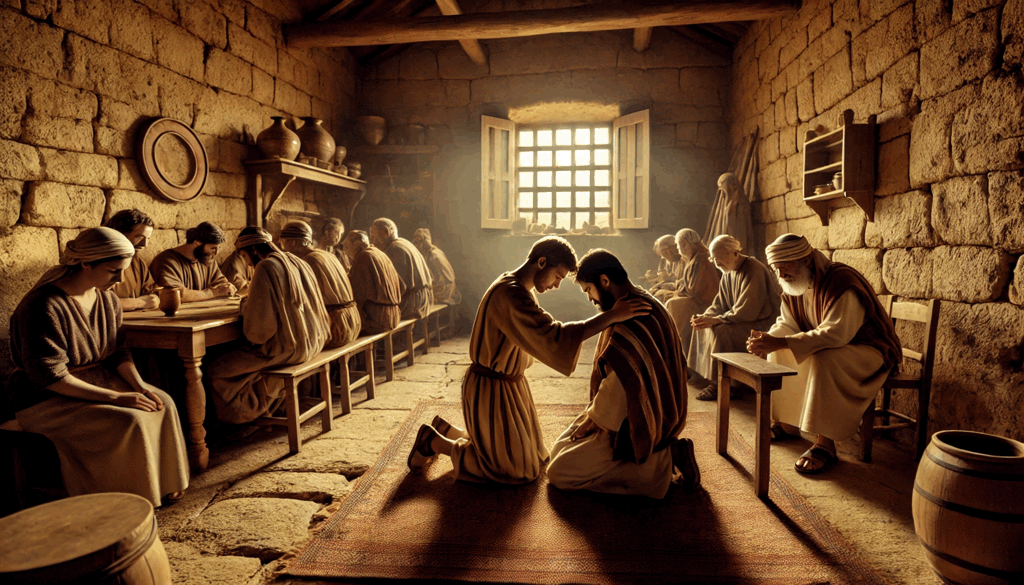Spiritual gifts are a fascinating and deeply personal topic for Christians, and 1 Corinthians 12 offers a profound exploration of these divine endowments. Written by the Apostle Paul, this chapter speaks directly to the church in Corinth, addressing division and providing insights on the variety of gifts bestowed by the Holy Spirit. Yet, its lessons resonate just as deeply today, reminding us of the importance of unity, purpose, and discovering our unique role in the body of Christ.
This blog delves into the key teachings of 1 Corinthians 12, examining the nature of spiritual gifts, the importance of unity, and practical takeaways for modern believers seeking to align their lives with God’s plan.
The Context: Who Were the Corinthians?
In 1 Corinthians 12, he begins by addressing past spiritual confusion, contrasting the lifeless idols they once followed with the dynamic power of the Holy Spirit. He sets the stage for an understanding of how God’s gifts operate and emphasizes their purpose: to glorify God and build up the church.
What Are Spiritual Gifts?
Paul introduces spiritual gifts as unique abilities given by the Holy Spirit. These gifts vary widely but share the common purpose of serving God and benefiting the collective body of Christ. Here’s an overview of the key gifts mentioned:
- Wisdom and Knowledge: Distinct yet complementary, wisdom relates to divine insight, while knowledge pertains to deep understanding of God’s truths.
- Faith: Beyond general belief, this supernatural faith enables extraordinary trust in God’s promises.
- Healing and Miracles: Physical restoration and miraculous acts demonstrate God’s power and compassion.
- Prophecy: While often associated with foretelling the future, prophecy also involves delivering God’s messages for encouragement or correction.
- Tongues and Interpretation: Speaking in and interpreting spiritual languages serve as a form of direct communication with God.
These gifts are varied but share a common source: the Holy Spirit. Paul underscores this unity, stressing that the same Spirit empowers all gifts and distributes them according to God’s will.
Unity in Diversity: The Body of Christ
One of the most beautiful metaphors in Scripture emerges in 1 Corinthians 12: the church as the body of Christ. Paul likens believers to different body parts, each with a unique function.
This metaphor teaches several vital truths:
- Every Part Matters: From visible roles (like eyes and hands) to hidden ones (like kidneys), every part of the body is essential. Similarly, every believer, regardless of their role, is valuable in God’s plan.
- Interdependence: Just as body parts rely on one another, Christians must work together, appreciating each other’s gifts.
- Unity Through Diversity: While our roles differ, our purpose is singular: to glorify God and serve others.
Paul’s message dismantles any sense of superiority or inferiority among believers. Whether a person is called to public ministry or behind-the-scenes service, their contribution is equally vital.
Avoiding Misconceptions About Spiritual Gifts
Paul’s teaching also addresses common misunderstandings about spiritual gifts that remain relevant today:
- Not Everyone Has the Same Gift: Spiritual gifts are diverse, and not every believer will exhibit every gift. This diversity reflects God’s wisdom in equipping the church for various needs.
- Gifts Are Situational: Gifts may be given for specific moments or tasks. For example, Peter’s healing of the beggar at the gate was an instance of the Spirit’s direct guidance.
- Gifts Are Not Earned: They are freely given by God’s grace, not as a reward for effort or merit.
This perspective reminds us to approach spiritual gifts with humility and gratitude, recognizing them as tools for God’s work.
Applying These Lessons to Modern Life
1. Embrace Your Unique Role
Each of us has a part to play in the body of Christ. Rather than comparing ourselves to others, we should prayerfully discern our gifts and use them wholeheartedly. For example, a person gifted in teaching might serve through Bible studies, while someone with a gift for administration might organize church events.
2. Celebrate Others’ Gifts
Instead of envying others’ abilities, we should celebrate them. A supportive community thrives when its members uplift one another, recognizing that all gifts contribute to the whole.
3. Seek Unity
Paul’s metaphor of the body reminds us that division weakens the church. Whether we disagree on minor issues or come from different backgrounds, our shared identity in Christ should unify us.
4. Stay Spiritually Grounded
Discernment is crucial in using spiritual gifts. As Paul notes, true gifts align with God’s character and purpose. When we feel led to act, we should seek confirmation through prayer and Scripture.
Reflecting on Our Place in the Body
The teachings of 1 Corinthians 12 challenge us to see ourselves and others through God’s eyes: as integral parts of a divine plan. Whether we are the hands, the eyes, or the less visible organs, we have a role to play that no one else can fulfill.
Conclusion
1 Corinthians 12 offers timeless wisdom for navigating life as part of God’s family. It calls us to unity, humility, and purpose, reminding us that we are stronger together. As we embrace our gifts and work collaboratively, we reflect the beauty of Christ’s body—a diverse yet harmonious whole.
Let this chapter inspire you to discover your gifts, celebrate others, and strengthen the church. Together, we can fulfill God’s mission, each playing our part in the glorious symphony of His kingdom.

